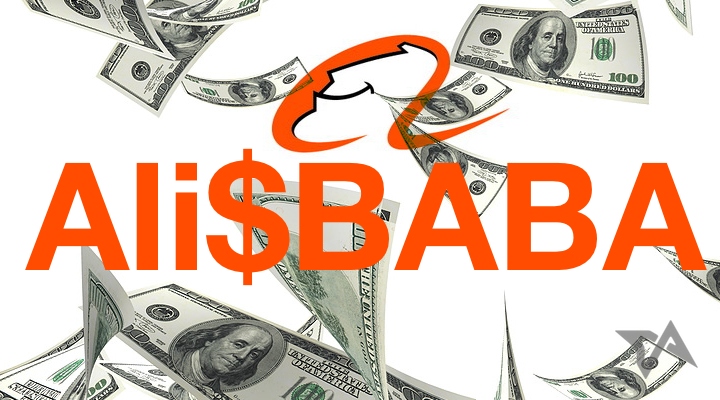Singapore’s two sovereign wealth funds (SWFs) have more money under management than the entire US venture capital industry. That factoid was shared with an audience at the Startup Asia Singapore conference by Meng Weng Wong, founder and ‘social engineer’ at Singapore startup accelerator JFDI.
And he’s right. The Government of Singapore Investment Corporation and Temasek Holdings are holding north of US$315 billion in assets, compared to a measly $200 billion across the entire US VC landscape. And it’s not just Singapore. Much of Asia’s wealth is stored in SWFs throughout the region, which are in turn invested into all kinds of properties and businesses.
In terms of fund size, half of the top 20 SWFs by asset size come from Asia-Pacific, with China leading the pack with a combined $1.3 trillion (thanks America!). My point – and Meng’s – for bringing up these facts is to show that wealth and talent are not lacking in the region when it comes to supporting a tech startup ecosystem. Sure, wealth is a precursor to innovation. Bill Gates and Steve Jobs, after all, were sons of wealthy, well-connected parents. So if wealth is the sole indicator, Asia’s already there.
Singapore, specifically, doesn’t lack talent. Many engineers, locked up in government scholarships, are told to project manage instead of code because the latter is perceived as lowly work. In fact, its former Prime Minister Lee Kuan Yew once acknowledged back in 2004 that there was “too much concentration of talent, drive and energy in the public sector”. Some of these individuals could be released into the commercial world. ”Let half go, let one third go and get them to be entrepreneurs, not just managers,” he told The Straits Times. But there’s a mindset problem. Would-be entrepreneurs opt for stable careers in an MNC or the government sector knowing they will be well-fed for decades. Investors prefer safe assets like property and established businesses instead of technology startups, out of fear of losing their wealth. Overall, the culture in Asia is risk-averse and conformist, or so we’re told.
Meng said that entrepreneurship in Singapore was a dirty word. Our forefathers were entrepreneurs out of necessity – they eked out a living on the streets to ensure we have a roof over our heads. A university degree and a stable job for their kids were just rewards for a generation who toiled under the sun. Yet Singapore is in transition. To prosper, it needs more ‘opportunity entrepreneurs’ – folks who create businesses not just to survive but to compete. Asia as a whole is undergoing this change.
Wealth is flowing into Asia and creating hope that the next generation can do better than the current one. So, as far as Asia’s startup ecosystem is concerned, it’s not about attracting US or European money. Rather, it’s figuring out how to uncover the pot of gold right in our own backyard.
Governments are an equalizer
The big G is taboo in many parts of the world, such as the United States and many developing countries. Marred by inefficiency, bureaucracy, and corruption, governments are seen as clueless meddlers with questionable intentions. But an effective government can play a huge role in fostering innovation, especially in Asia. It could funnel some of that latent wealth into innovative sectors of the economy.
As an authority figure, a forward-looking government can become an effective promoter of entrepreneurial behavior. Conformity, normally a negative trait for entrepreneurs, can become a positive. Conformity has been noted by social psychologists as one of the most effective ways to change behavior. This explains why the best and brightest engineers flock to Silicon Valley – they want to be among folks who share the same values. Governments serve as a check against inequality.
In this context, there’s a huge disparity between Silicon Valley and the rest of the world when it comes to engineering talent and startup knowledge. Free market forces are unlikely to shift the tide in Asia’s favor, unless you happen to be China or India. In these countries, sheer population size and abundant natural resources are advantages that can partially offset an ineffective government. Even then, it’s hard to argue that the authoritarian regime in China did not play a supporting role in engineering the rise of the country’s largest tech companies, which are now poised to take on the world.
Finally, governments can encourage the spread of technology, since a state’s relationship with public institutions and large enterprises could benefit startups who know how to plug themselves into the network. Sure, some founders might cringe as startups are supposed to be the perennial outsiders who disrupt whole industries. But certain innovations require friendly government regulations and cooperation to be successful. uber model car Uber needs to play nice with governments to succeed.
Public transportation is an example. Uber and GrabTaxi are constantly talking to government authorities to communicate their message and stay on the right side of the law. Singapore carsharing service iCarsClub is engaged in dialogue with the local government to amend regulations that prevent car owners from leasing out their vehicles on weekdays. Governments could prop up technologies that rely on network effects to be successful. Square Wallet’s failure is an interesting case study. Even with Starbucks as a major customer, consumers did not find it useful since cash or credit cards were already ubiquitous modes of payment. It was, in the words of Wired, a case of the old way being just good enough.
Now, imagine a payments company partnering with a government, which mandates that an entire city adopts the same system. It’s a huge difference maker. In fact, this has already been achieved many times over, as shown by Singapore’s implementation of the NETS payment system and Hong Kong’s adoption of the Octopus card. Both projects are commercial in nature, yet involved the government heavily. Governments need not always play an active role in implementing technology. Instead, they can enact regulations and policies that make it easy for startups to hire talent, test new technologies, and incorporate.
Innovation at scale
Various attempts to reform the economy are underway in Asia. South Korea has a new startup visa that takes just months to process and gives deserving entrepreneurs access to some benefits offered to citizens. Japan, meanwhile, is embarking on the Third Arrow of Abenomics that aims to reform agriculture, labor markets, healthcare, and female workforce participation in order to keep itself competitive for decades to come.Singapore is funneling some government money into startups through its various funding schemes. It’s also gathering a critical mass of talent into a startup hub called Block 71 where it hopes to foster a new kind of conformity.
Detractors wonder if this much government intervention in the economy is a good thing. Bureaucrats, after all, aren’t equipped to identify opportunities in the technology space. But if you’re trying to catch up with that weird and wonderful place called Silicon Valley, and if the private sector is not willing to place bets on technology, then the government is pretty much your last option. Many parts of Asia aren’t like Singapore or Hong Kong, however.
In reality, many countries lack the critical institutions and infrastructure to make state-sanctioned innovation fruitful. Thailand is a mess politically, while corruption is still rife in Indonesia and the Philippines. For these countries, success will rest on how soon they can get their politics together, and whether or not their private sectors – which include an army of successful diaspora – can reform the economy to encourage startup creation.
Innovation, in essence, is a form of social engineering. It’s about modifying human behavior en masse on the basis of some derived benefit. What’s needed is an actor or group of actors that are powerful enough to implement behavioral change at scale. Where these actors come from – top, bottom, or a mixture of both – doesn’t really matter.












